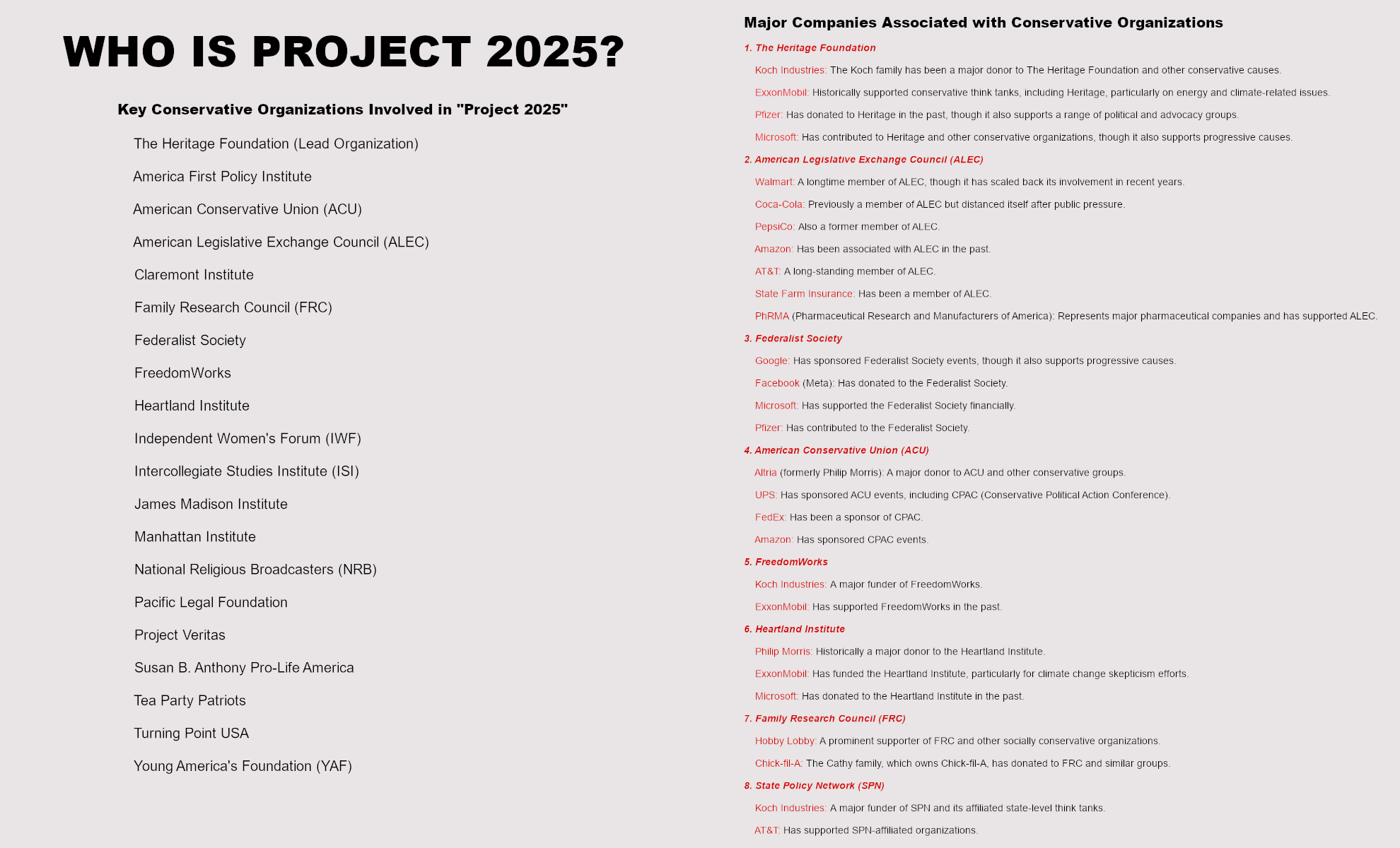Please Join Now,We'reUnderConstructionThanx!
"By And For The People"

- Defend the U.S. Constitution against all threats and subversion
- Protect Second Amendment rights from government overreach
- Push back against unconstitutional policies targeting our freedoms
- Obey all constitutional law local, state and federal.
- Unite lawful gun owners in the fight for liberty
Project 2028 - First Steps!
Roadmap:
-
Educate Yourself and Others
-
Read Project 2025’s Mandate: Study its key proposals (Heritage Foundation’s official site: project2025.org).
-
Debunk Misinformation: Share credible breakdowns from sources like Brookings Institution or AP Fact Checks.
-
Use Social Media: Short, viral explainers (TikTok, Instagram Reels) reach more people than long essays.
-
-
Mobilize at Local and State Levels
-
Pressure State Legislators: Many Project 2025 policies depend on state cooperation (e.g., voting laws, education changes).
-
Attend Town Halls: Demand commitments to block unconstitutional measures.
-
Support Grassroots Orgs: Groups like MoveOn, Indivisible, or local Common Cause chapters fight authoritarianism.
-
-
Defend Vulnerable Institutions
-
Protect Federal Workers: Whistleblowers and civil servants may resist unethical orders—support networks like Protect Democracy.
-
Vote in Down-Ballot Races: School boards, secretaries of state, and judges shape policy more than people realize.
-
-
Legal and Economic Pushback
-
Sue Over Unconstitutional Actions: Organizations like the ACLU and Georgetown’s Institute for Constitutional Advocacy litigate abuses.
-
Boycott/Divest: Target corporations funding Project 2025 architects (e.g., Koch network, major GOP donors).
-
-
Prepare for 2024 and Beyond
-
Register Voters: Boost turnout via Rock the Vote.
-
Run for Office: Local seats (city councils, DA roles) shape enforcement of federal mandates.
-
Build Parallel Systems: Mutual aid networks, community defense, and independent media reduce reliance on captured institutions.
-
Urgent Action
-
Join OurGunsMatter.com: Defending our U.S. Constitution against all threats and sabotage.
-
Join Rapid-Response Coalitions: Choose Democracy trains citizens to resist election subversion.
-
Donate to Shield Groups: Brennan Center (voting rights), Reporters Committee (press freedom).
-
Stay Visible: Protests, op-eds, and art shift public narrative.
The goal isn’t just to stop Project 2025—it’s to stop who's behind it. Read More :
Know Your Enemy!
"Know your enemy! Know yourself!" (The Art of War, Sun Tzu).
Corporate Support for Conservative Groups: How Public Pressure Shapes Corporate Alliances
Major brand companies often engage with political and advocacy organizations to influence policy, protect business interests, and maintain relationships with lawmakers. However, their support for conservative groups—such as the American Legislative Exchange Council (ALEC), The Heritage Foundation, and the Federalist Society—is rarely static. Instead, corporate involvement tends to shift in response to public awareness, activist pressure, and changing social priorities.
Why Companies Support Conservative Organizations
Many corporations donate to conservative groups for pragmatic reasons, including:
Policy Influence: Businesses seek favorable legislation on taxes, regulations, and labor laws.
Access to Lawmakers: Groups like ALEC provide direct connections to state legislators who draft model bills.
Ideological Alignment: Some corporate leaders or shareholders support conservative economic or social policies.
However, these relationships often come under scrutiny when the organizations promote controversial policies—such as climate change denial, restrictive voting laws, anti-LGBTQ+ measures, or opposition to abortion rights.
Public Pressure Forces Corporate Retreats
When consumers, employees, and activists expose corporate ties to contentious political groups, companies frequently distance themselves or cut ties entirely. Some notable examples:
1. ALEC’s Corporate Exodus
The American Legislative Exchange Council (ALEC), known for advancing "Stand Your Ground" gun laws and voter ID restrictions, faced a mass corporate exodus in the early 2010s after public backlash. Major brands that withdrew include:
Google, Microsoft, Facebook (Meta), and Yelp (left over ALEC’s climate change denial)
Coca-Cola, PepsiCo, McDonald’s, and Walmart (faced boycotts over ALEC’s voting rights policies)
General Motors, Kraft, and Procter & Gamble (quietly ended memberships after activist campaigns)
2. The Heritage Foundation & Koch Industries
While Koch Industries remains a major funder of conservative think tanks, other companies like Pfizer and Microsoft have reduced their public affiliations with groups like The Heritage Foundation after criticism over healthcare and social policies.
3. Family Research Council (FRC) & Chick-fil-A
Chick-fil-A faced years of protests over donations to FRC, an organization labeled a "hate group" by the Southern Poverty Law Center for its anti-LGBTQ+ stances. The company later announced it would stop funding certain controversial groups—though critics argue its giving continues through other channels.
The Corporate Balancing Act
Many companies try to donate to both sides of the political spectrum to avoid alienating customers. For example:
Amazon, AT&T, and Comcast have supported both conservative and progressive causes.
Disney faced backlash for initially staying silent on Florida’s "Don’t Say Gay" bill—then publicly opposed it after employee protests.
However, in today’s hyper-transparent digital age, consumers and employees demand accountability. Brands can no longer quietly fund divisive policies without risking reputational damage.
The Future of Corporate Political Spending
As activism grows—through social media campaigns, shareholder resolutions, and employee walkouts—companies are increasingly forced to reevaluate their political alliances. Key trends include:
Greater transparency in corporate donations (e.g., public disclosures of PAC funding).
More aggressive consumer boycotts targeting brands tied to controversial policies.
Internal pressure from employees demanding ethical corporate behavior.
Conclusion: Public Awareness Drives Change.
Corporate support for conservative organizations is not set in stone—it evolves under public scrutiny. While some companies still quietly fund these groups, others have learned that consumer and employee backlash can outweigh any political benefits. In an era where brand reputation is everything, companies must carefully weigh whether their political spending aligns with their customers’ values—or risk paying the price.

